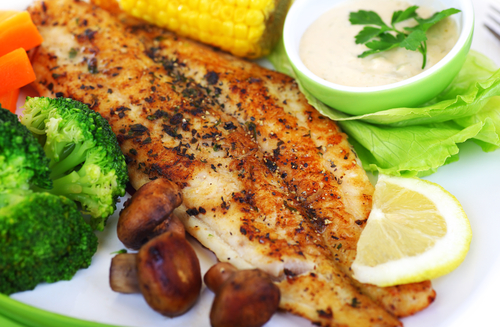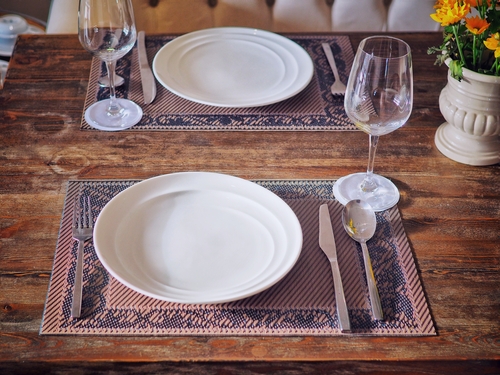Whether you are a family caregiver or a professional caregiver from a home care agency, meal planning and preparation is frequently a major part of the care you provide. Your senior may be able to make a breakfast or lunch without assistance. Usually it is the hot meal of the day that is too difficult or unsafe for the senior to accomplish unaided. Signs that there is a problem include finding burned pots and pans, a burner or the oven left on, or spoiled food in the refrigerator.

Once it becomes apparent that your senior needs help with meal preparation, the question is who will provide that assistance. In some cases, a family member is able to take on that task. Remember, that will include planning the meals, shopping for the necessary ingredients, cooking the meals and, hopefully, sharing the meal with your senior. You will probably also have to clean up after. It isn’t realistic for most families to take on this task.
There are other options. Senior meal services such as Meals on Wheels will deliver a hot meal each day. The senior is given some options on the menu, but it is limited. Another option is home care assistance.
If you decide that home care is the best alternative, the first part of the process is an evaluation of your senior by a trained professional. Frequently an RN, she will visit with your senior and, after the evaluation is completed, make recommendations. There may be other tasks that your senior is having difficulty managing. Sometimes it just means some adaptive equipment will be helpful. It may be an eye-opener into the life of your senior.
The goal of the caregiver who is responsible for the meals is to be sure they are appealing to the senior, providing adequate nutrition, and meeting any special needs of the senior.
1. Planning the Menu. Planning the menu should be done with the senior. You must know if there are any dietary restrictions such as a low-salt diet. Does the senior have any food allergies or sensitivities? Your senior may have difficulty chewing and need their food chopped or even pureed. Once you have determined if there are any factors that must be considered in the meal plan, you can start planning a menu.
- Plan the menu for the entire week at a time. This is more efficient and will minimize the number of trips to the grocery store.
- Make a shopping list as you decide on the menu.
- Add spices or herbs to make the food more appealing. This is especially helpful if your senior is on a low-salt diet.

2. Likes and Dislikes. Try to determine what foods your senior likes but also what they don’t like. Maybe they don’t like fish, but they do like shrimp, crab, or scallops. They may like orange juice but not oranges. Maybe the reason they don’t like fresh oranges is that they are hard to peel. With you there to peel them, oranges might return to the menu.
3. Home Recipes. If your senior has any recipes that will show you the way they used to prepare the food, you can make it the same way. Does their home-cooked chili include noodles or not? Is the heat index of your senior’s chili a matchstick level or a bonfire?
4. Treats. Don’t forget to include an occasional treat. Think seasonally and have your menu plan include an apple dessert in the fall. If you plan ahead, you might even go to an orchard and pick the apples to use in the dessert.

The meal plan is complete, but the setting is just as important. Use attractive or seasonal placemats on the table. Pick flowers from the garden. Even a single flower in a small vase adds some importance to the meal. Set the table neatly. Use paper napkins. They come in all different designs from cute to beautiful.
Every holiday has napkins to complement the theme. Try to provide good contrast between the food being served and the plate. It will be easier for seniors with vision problems to see the food. Research has found that Alzheimer’s patients eat more if the food is served on a red plate. It is interesting and may be worth the purchase of a couple of new red plates if you are caring for a senior with dementia.
Make mealtime relaxed and connected. Turn off the TV or other distractions. Talk to each other about the day’s events, but keep it stress-free. If the weather permits, eat outdoors occasionally. Try to make mealtime something to look forward to for both of you.

